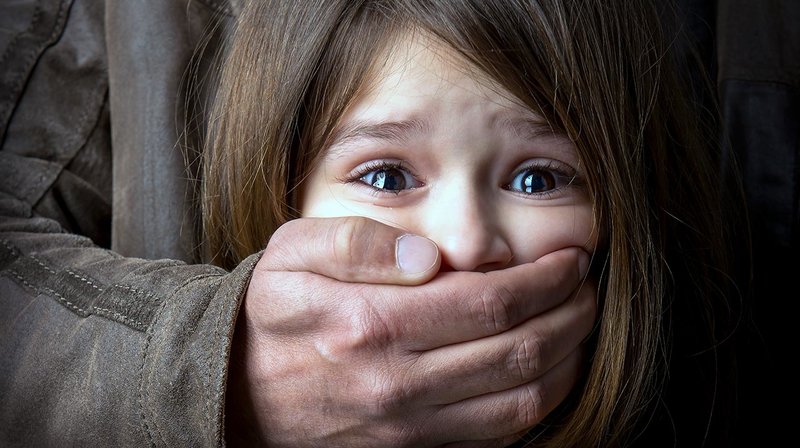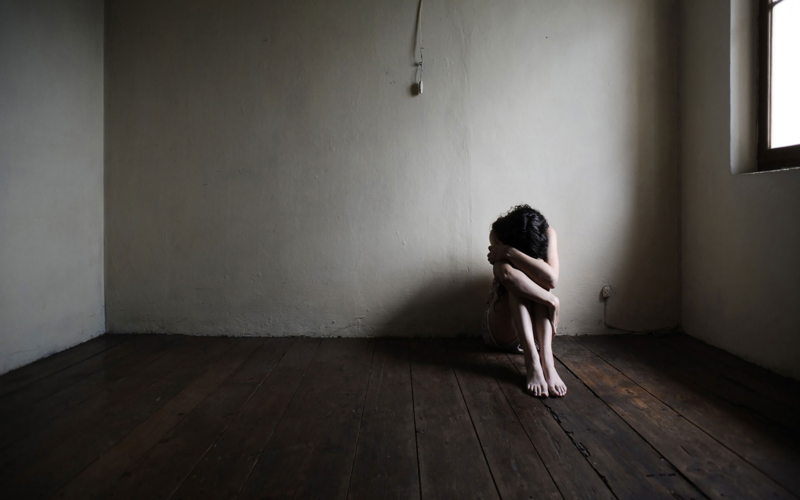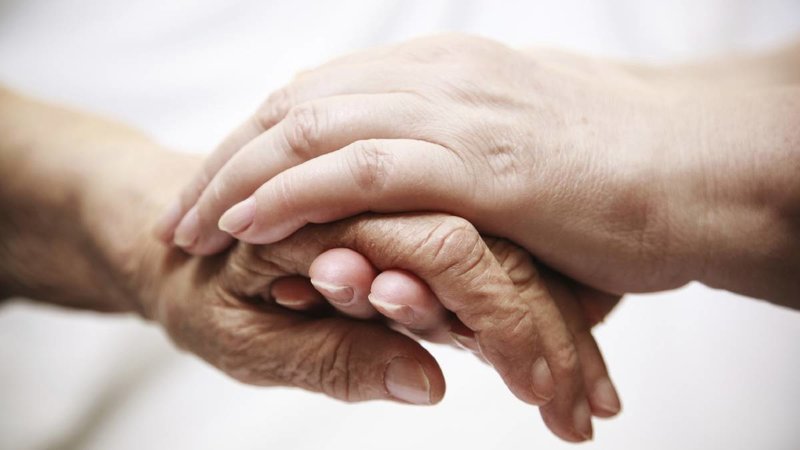
Emotional, moral, psychological violence in the family - these are all forms of pressure on a person and belittling their dignity in a narrow circle of society, limited by family. It is difficult to recognize such violence due to the absence of any traces other than the psychological state of the victim. The consequences of such violence can be terrible: from a nervous breakdown to severe depression and even suicide. However, in order to prevent the consequences, it is necessary to identify the problem in time, its causes, types and symptoms. Without working directly with the victim and her personal involvement, the solution to the problem is complicated tenfold.
Description of psychological abuse

Various types of psychological violence in the family, also called moral or emotional, are non-contact effects of a systematic nature. The purpose of these actions is to make the victim obey and act in accordance with the explicit or secret desires of the aggressor.
From this type of psychological pressure, the most affected are physically and / or mentally weak family members - women and children. However, men are often victims of emotional abuse.
Types and signs of psychological abuse

The manifestations of psychological violence are purely individual and manifest themselves depending on many factors: family composition, personality of the aggressor, financial situation, etc. However, the conclusions drawn from the cases gathered together make it possible to classify psychological violence by such types as:
- Humiliation - a type of psychological violence in which the victim is ridiculed, condemned, criticized, insulted and humiliated in every way, for example: they are addressed not by name, but using an offensive nickname;
- Dominance. In this case, the victim is treated like a child, making comments about unacceptable behavior, demanding to follow certain rules, noting every mistake and controlling the circle of communication and spending. thereby also providing economic violence;
- Ignoring - violence when a boycott and demonstrative inattention to the victim is used as punishment;
- Accusations - the responsibility for all the failures and failures is transferred to the victim, ignoring even the fact of her complete non-involvement in the problem;
- Co-dependency - the victim is completely deprived of the right to decide their own affairs, forcing them to depend on the aggressor in everything.
There are a lot of types of psychological violence, but the most terrible and grave of them is considered gliding. This term is applicable to a situation where the aggressor sows doubt in the victim’s mind about her own sanity. For example, the aggressor pushes the victim out of himself and she becomes annoyed, to which the aggressor convinces the victim that she is too hot-tempered.If you repeat any thing many times in a row, sooner or later, a person will think about taking it for reality and, as a result, will really doubt the adequacy of his reaction.
The distinct symptoms of glasing are also observed in other forms of moral violence and are most often observed in marital relations, workers, friendly, and on the scale of power-people relations. The main signs of gliding:
- Constant doubts about his innocence;
- Too private apologies;
- Fear of even a simple choice;
- Constant questions to yourself - are you too sensitive;
- Frequent review of their own opinions.
The hardest thing to deal with emotional abuse at home, if we are talking about a person who is dear to you. In such cases, you should never resort to retaliatory aggression, and focus on what you are ready to do to improve relations by omitting words about how someone else is ruining them.
Causes of Psychological Domestic Violence

Despite the fact that Leo Tolstoy’s famous saying: “All happy families are alike, each unhappy family is unhappy in its own way” is relevant in identifying individual causes of psychological violence, according to the world classification its causes are divided into two models with the following varieties:
- Personality-family model of behavior;
- Sociocultural model.
Personality-family model moral violence in the family, has three varieties:
- The theory of the innate instinct of aggressiveness;
- Psychoanalytic approach;
- The non-behavioral approach.
Theory innate instinct of aggressiveness explains violence with a genetic predisposition. According to this theory, not only in the family, but also in society as a whole, aggression and violence of any kind arises as a result of a person’s genetic program to dominate through aggressive actions.
According to psychoanalytic approach a model of violent behavior is generated in childhood. If the child was limited in receiving positive emotions, basic needs, controlled and did not recognize his authority in childhood, then, growing up, such a person will unconsciously limit others, showing aggression and violence.
The non-behavioral approach considers violence a model of behavior of a hereditary nature, “learned” as a result of the experience of previous generations, and is similar to the theory of the innate instinct of aggressiveness, but does not go so deep. Hypothesis about intergenerational transmission of violence states that in families where there is violence of any kind, this state of affairs is repeated from older relatives to younger ones.

Sociocultural model provides for varieties such as:
- The approach of radical feminism;
- The approach of socialist feminism;
- Gender approach;
- The difficulties of social status.
From point of view radical feminismpsychological domestic violence against a woman is due to patriarchal criticism of women by men. Gender inequality and men's attempts to show dominance in the family and society lead to the appearance of psychological violence in the family. Thus, for men, violence is a way to control, subjugate and suppress the authority of women to maintain the traditional, in their opinion, system of views and relations.
The approach of socialist feminism It is based on the fact that the generally accepted family structure, in which the class capitalist system is reflected, leads to a decrease in the social status of women. It is common for socialist feminism to assert the functionality of suppressing women from the point of view of capitalism, which exists due to the unpaid labor of women acting as reserve labor.
As for the family where the husband is the sole breadwinner of his wife and children, while ensuring the stability of a capitalist society, the socialist patriarchy sooner or later leads to the exaltation of the breadwinner cult. If initially the wife’s dependence on her husband is expressed only economically, then soon an emotional dependence will appear, leading to passive submission. The husband gains full power over his wife, frightened by the risk of losing economic security, and, being in fear of losing his job and the status of a breadwinner, the tension spills over his wife, trying to achieve internal balance.
Gender approach, in contrast to the two previous varieties of the sociocultural model of behavior, excludes the appearance of psychological violence by proclaiming the equal rights of men and women in the field of any relationship. Being deprived of reasons to dominate each other, partners build a family on the basis of equal positions and taking into account the goals of each other, excluding any kind of violence in inter-sexual relations.
Domestic violence by a man may occur in view of social difficultiescaused by life circumstances. Inconsistency with the generally accepted image of the traditional male role (professional success, status in society, income level) forces a man to demonstrate masculinity in another area, compensating for his failure by the manifestation of aggression.
In almost any family where psychological violence is manifested, the situation can be reduced to one of the varieties. Understanding the model of behavior helps the psychologist to develop the right plan of action to stabilize the situation in the family.
How does domestic violence develop?

The process of development of domestic violence against a woman often becomes determined only at the active stage, however, it is not difficult to track the phases of development, starting with the premises.
In general, the formula for psychological violence is planned in increasing order: fault - Soil sample - Active oppression - Peak - Full submission / Catharsis.
According to the formula for the development of the phenomenon of family psychological violence, it all starts with fault. The situation that happened with the aggressor is possible long before today: dismissal from work, death of a close relative, failure in business - any negative event that has seriously affected a person can make him assert himself by dominating the weak.
Then the aggressor beginsprobe the ground". At this stage, the victim has a weak chance to defend himself against an attack on his psyche by rendering a worthy rebuff. If this does not happen, the aggressor understands that he has room to put pressure and begins to “try the soil” more actively. The first insults, the first humiliations and restrictions, attempts at manipulation develop into active oppression.
Phase active oppression it can last for many years and its outcome depends on the actions of the victim and the awareness of the aggressor. If the first resists, and the second is capable of understanding the reasons for their behavior, both have a chance to regain their attitude to stability. If the victim has no power to resist, and the aggressor is too passionate about violence, sooner or later active oppression will peak.
The peak of psychological abuse often does not last long - from the shortest moment to several months. During this period, both the victim and the aggressor give all the best, exhausting each other: the victim - with resistance, the aggressor - with psychological violence. In this acute period, any careless movement can lead to irreversible consequences for both - complete submission or catharsis.
Last phase - decisive, and few reach it, permanently stuck in the phase of oppression. This is due to either the small age of the victim, or the strong co-dependence of the victim and the aggressor.To achieve this phase is impossible without the victim's full awareness of what is happening, which is almost impossible under the conditions of glazing. Realizing the fact of violence itself and its desire to break free from the yoke of the aggressor, the victim will break or break out of control: allow full submission or reach catharsis and free himself, overflowing his patience.
Effects

Depending on the frequency, severity and cruelty of the manifestations of psychological violence, how long the victim was exposed to him, and many other circumstances, the consequences can be different. However, for the most part they come down to a list derived from statistical studies of Russian psychologists.
Thus, victims of psychological violence in the family most often experience consequences such as:
- Physical health problems: weakened immunity, the development of chronic diseases as a result of constant stress;
- Problems of an emotional nature: depressive psychoses of varying severity, psychological trauma, post-traumatic stress, constant or periodic sensation of anxiety, fear;
- Problems in communicating with people, isolation, social disorientation;
- Suicide attempts;
- The syndrome of emotional dependence, an exaggerated need to receive and give love;
- Ignoring one’s own needs as a result of many years of uncertainty about one’s full value;
- Alcohol or even drug addiction as a result of attempts to get rid of psychological discomfort.
Psychological abuse of the mother is also reflected in children, if, of course, they exist. Children watching a permanently frightened mother in a subordinate position grow up and build their families according to what they saw in childhood. Some of these children become the same victims, some - rapists. Such consequences are difficult to correct, making confrontation and the prevention of domestic violence a critical aspect of the work of parents and psychologists.
How to counter psychological violence in the family?

Often, victims of moral violence in the family feel weak in relation to those who suppress their will. It is very important for the victim to strengthen his inner strength in order to fight violence.
There are a number of actions that can help cope with aggression in the family:
- First of all, it is necessary to work on communication skills and self-confidence. The victim will most likely have to find the resources for this herself, perhaps even outside the family, for example, from relatives, friends and social workers, since the aggressor most often uses all available levers of pressure, sometimes even restricting the victim’s contact with the outside world;
- If the violence is limited to psychological and there is no physical threat, it is important to learn how to properly respond to aggressive outbursts;
- Sometimes the aggressor does not even realize how unpleasant and harmful his words can be. It is important to learn to explain this to him and make it clear when it hurts;
- A request for reciprocity can sometimes turn things around for the better. When the aggressor demands warm feelings from the victim, a request for mutual warmth may come as a complete surprise to him. There are cases when this opened the eyes of the aggressor and radically changed the situation;
- If you are being cruel or threatening, make sure that the aggressor is aware of its actions. Ask him, in a calm tone, if he understands what he is doing. Perhaps he does not realize the destructiveness of his own actions and he just needs to open his eyes;
- Do not be afraid to resort to manipulations in acute situations. If the conflict has reached a peak, point the aggressor to the consequences of violence, for example, to children who see what is happening. In some cases, this can make him calm down and think about his behavior.
Of course, in each of the options the victim will encounter the resistance of the aggressor.However, you must not give up and fight to the end, resisting every time violence is manifested. Knocking on the aggressor is not easy, every time you need to carry out a whole psychological work, checking and often using those answers and actions that work. Do not underestimate your strength.
In an extreme case, when you yourself fail, you can try to seek the help of a professional. First, to the victim herself, then, if the aggressor agrees, along with him. If this does not help, the only way out is to reduce communication to zero or completely exclude the aggressor from life.
Prevention of Domestic Violence

Prevention of any domestic violence in the family should begin even before its primary signs. Child abuse is prevented even when a pregnant woman is registered. Based on the results of various tests, specialists should determine whether a woman has a tendency to violence, and whether she is exposed to it. Already when the child is born, parents are advised to plan visits to the family health clinic, and seek the help of a psychologist.
An important point in the prevention of moral violence in the family is the social responsibility of others. Sometimes the situation can be saved by relatives or by strangers who, upon seeing signs of violence, will turn to the appropriate authorities. At the initial stage, this problem is successfully solved by several conversations with psychologists, preventing huge problems.
If you yourself feel yourself under excessive control by the partner, think about whether these manifestations are a concern. At the developmental stage, such relations should be very carefully analyzed and interrupted until custody has grown into control. If there are small children in the family, it is better to avoid extreme measures and not injure their psyche by taking a break in relationships, using the help of relatives or specialists.
When the victim cannot get rid of fear and anxiety for his fate, she can always seek psychological help from the trust service or other authorities:
- Law enforcement authorities (if there is also physical or sexual violence);
- Medical facilities (there you can record beatings and talk with a specialist);
- Social assistance centers;
- Helpline.
At the stage of development of relations, the main mistake of women is a complete dedication to a partner: friends, work, entertainment fade into the background. In an effort to strengthen relationships and cater to a partner, women accustom him to power and submission, thereby becoming vulnerable.
No wonder they say that both the victim and the tyrant are guilty of violence. It is important to be aware of all actions. In no case should one decide on the birth of a child solely for the purpose of strengthening relations and the ephemeral hope of change. First of all:
- To convey to the partner who has at least the makings of a psychological rapist, the seriousness of his actions: the pain that he brings to you, the discomfort that you feel, the severity of the possible consequences for both of you;
- Seriously work on correcting the fault that led the partner to express aggression, contact specialists;
- You can not respond to aggression with aggression, trying to "shout" and crush the aggressor - this way you can anger him even more, or, conversely, break it completely;
- The cyclical nature of violence cannot be ignored: if there is a lull, this does not mean that the problem has been eradicated. Violence tends to repeat itself with renewed vigor.
If a woman notices that a discomfort has appeared in life similar to the consequences of psychological violence, and even more so - if her child begins to feel the same, you should seek help as soon as possible. Do not be afraid to attract relatives, psychologists, social centers - the problem of violence must be prevented even in its infancy.


































